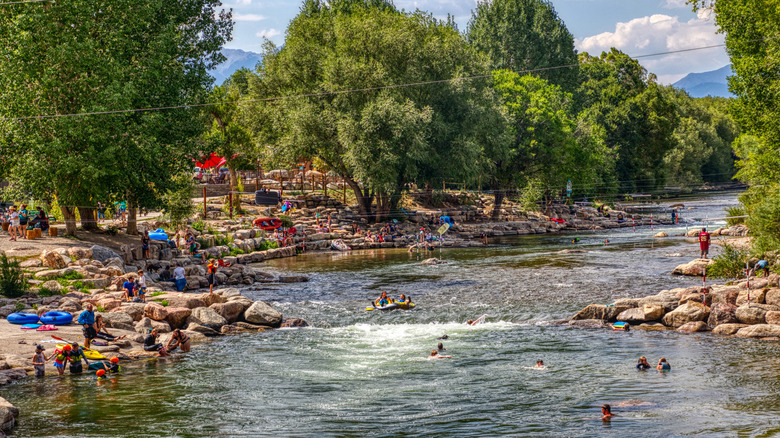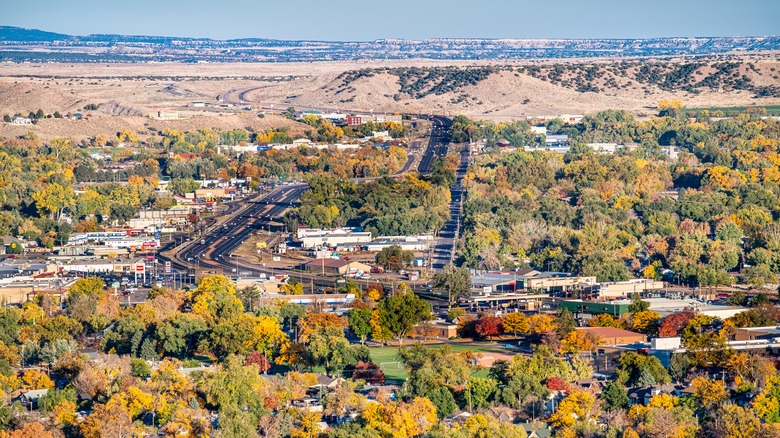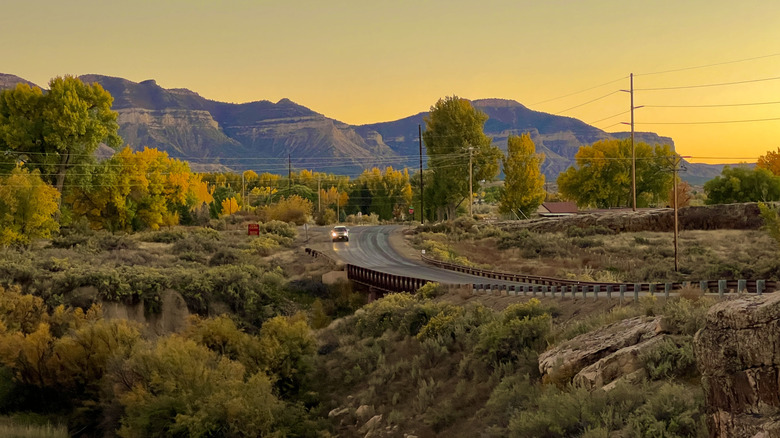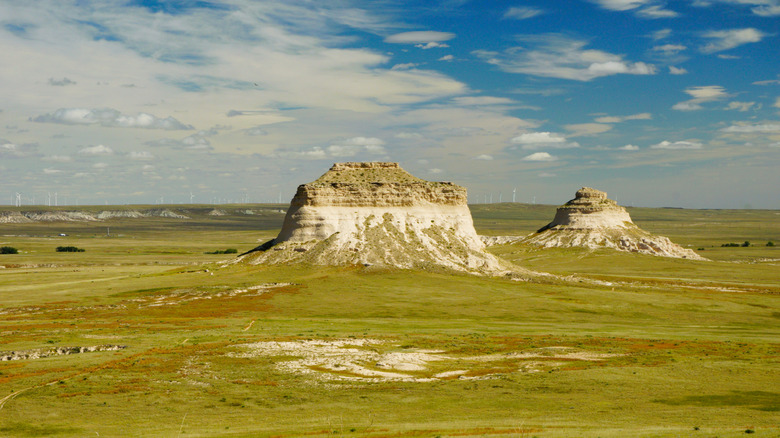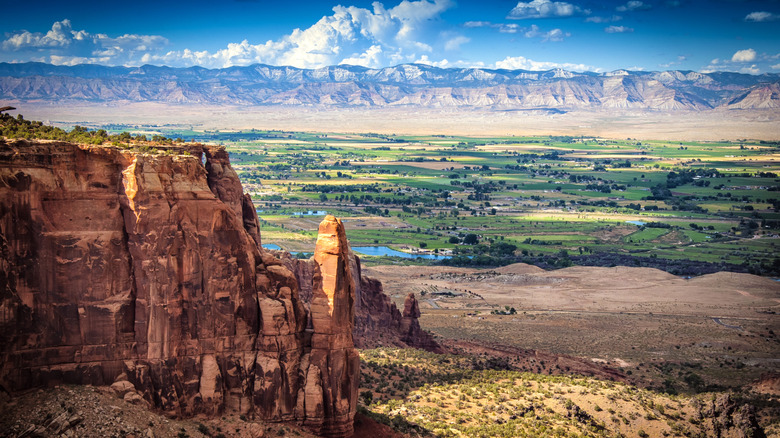The Top 5 Colorado Mountain Towns Where Americans Can Live On Social Security Alone, According To Research
For many retirees, the idea of spending their golden years in Colorado conjures images of crisp air, historic mountain towns, and endless trails to explore. The reality, though, is that many of the state's most popular destinations, like Aspen, Breckenridge, or even Denver, are much too expensive for those living on Social Security alone. That said, a handful of smaller communities in the state strike a balance between affordability and a high quality of life for retirees.
Towns like Salida and Cañon City offer seniors access to healthcare, strong communities, and scenic recreation while maintaining a manageable cost of living. These towns prove that retiring on just Social Security benefits (an average of $1,976 per month for retired workers, according to the Social Security Administration) in Colorado doesn't have to mean sacrificing comfort, lifestyle, or beautiful surroundings. Each community offers its own version of mountain life, whether strolling through a historic downtown district, hitting up the local farmers market, or spending the day fishing along a quiet riverbank.
Retirees can enjoy the kind of small-town camaraderie often missing in larger, less cost-effective, and more touristy communities, along with the peace of knowing that everyday expenses won't consume their budgets. Our recommendations were created with input from a Colorado native who has firsthand experience in each featured location and an understanding of local atmosphere, culture, and cost-of-living dynamics. Research was supported by recent data from local government sources, Niche, and the U.S. Social Security Administration, to ensure accuracy and relevance.
Salida
Salida is a quaint, under-the-radar mountain town in Colorado where adventure meets artistic flair. The town is located two and a half hours southwest of Denver. It blends stunning natural surroundings with affordability for seniors and retirees. Nestled near the gorgeous Sawatch Range and situated along the Arkansas River, outdoor recreation is a huge draw in Salida. For retirees receiving only Social Security, the cost of living in Salida is more manageable than in more populous parts of Colorado, though not without its challenges.
Despite an average rent of $1,597, according to Niche, communities in Salida offer affordable housing for income-restricted individuals. The cost of living in Salida is just 2% higher than the U.S. average, particularly in terms of healthcare, likely due to Colorado's rising healthcare costs statewide. Colorado's state-based insurance marketplace, Connect for Health Colorado, offers financial assistance, which can lower health insurance premiums in some cases. Transportation costs are comparatively more affordable, likely due to the higher walkability of Salida's downtown district.
Healthcare is readily accessible in Salida, with the Heart of the Rockies Regional Medical Center conveniently located in town. The Salida Chamber of Commerce also highlights resources for seniors, including programs, activities, and financial assistance. While Salida may have its drawbacks for seniors living on Social Security alone, like higher healthcare and housing costs, both the state of Colorado and the town itself provide programs for assistance and affordable access to a plethora of outdoor activities and a slice of small-town living.
Cañon City
Located around an hour south of Colorado Springs, Cañon City is an affordable gem for retirees seeking Colorado's outdoor beauty and historic character. Home to America's highest suspension bridge that connects a Colorado canyon with trails, trains, and outdoor fun, this town of over 17,000 residents provides plenty to do without the inflated costs of resort destinations in the state. The town's cost of living is a major draw, with housing prices and rental rates below the national average.
For seniors living on the average of $1,976 monthly from Social Security income alone, Cañon City provides a median rental rate of $931, one of the most affordable on the list. Cañon City offers multiple senior housing options, such as Three Links Apartments, which has income restrictions and accepts HUD and Section 8 vouchers. Retirees, particularly in these nearby communities, have access to healthcare at St. Thomas More Hospital, ensuring medical needs are met close to home. Like many other places in Colorado, however, healthcare costs are less affordable in Cañon City than in the nation, on average.
Food and transportation costs in Cañon City are more budget-friendly than in other areas of the country. High walkability scores and affordable public transportation offered through Fremont County Transit make it even more affordable to navigate daily errands. Rides with Fremont County Transit are low-cost and often covered by Medicaid, reducing the need for personal vehicle-related expenses that would otherwise consume valuable income.
Cortez
For retirees seeking affordability, history, and unmatched scenery, Cortez is one of America's most overlooked cities and a beautiful, bustling gateway to Colorado's canyon country. Unlike many mountain towns that heavily rely on tourism, Cortez has managed to remain accessible to residents on a fixed income, particularly those living on Social Security alone. Located in southwestern Colorado, the town, with a population of just under 9,000, offers a median rent of $1,028 and home values of $226,700, according to Niche.
The overall cost of living in Cortez is 12% lower than the U.S. average and 20% below the average in Colorado. Housing, transportation, and food costs are all more affordable in the town than in other parts of the country. When it comes to the affordability of healthcare, Cortez, like the state of Colorado, has higher costs across the board that continue trending upward.
Montezuma County offers senior centers in Cortez and other nearby towns with services like financial and health insurance assistance, public transportation, and senior activities. For active seniors, one of the town's biggest assets is its location. It sits at the gateway to Mesa Verde National Park, a UNESCO World Heritage Site renowned for its Ancestral Puebloan cliff dwellings. Budget-friendly outdoor recreation surrounds the town, with options including McPhee Reservoir, the San Juan Mountains, and miles of nearby trails. These historic amenities, paired with the relatively low cost of living in Cortez, make the town an appealing choice for seniors relying solely on Social Security.
Fort Morgan
Fort Morgan offers retirees a peaceful, small-town lifestyle surrounded by the open beauty of Colorado's Eastern Plains. Located just over 80 miles northeast of Denver, this agricultural community is known for its affordability, especially for seniors living on Social Security income. Housing and rental costs remain below the national average, with a median rent of just over $1,000 and home values at $259,900. Much like other cities on this list, Morgan County offers several state-based programs for housing and financial assistance on top of its affordable rates.
While cities like Salida and Cortez offer an abundance of attractions and recreation, Fort Morgan has slightly fewer options. Despite its location near options like the Pawnee National Grasslands and Jackson Lake State Park for fishing, hiking, and wildlife sightings, these outdoor attractions require a bit of a drive. Vehicle and transportation costs may not always be a worthwhile addition to a budget that depends solely on Social Security. For seniors less interested in outdoor recreation or adventure, residents say that Fort Morgan offers events in town, basic activities, and a tight-knit community.
Transportation and food costs tend to be more affordable in Fort Morgan, helping Social Security benefits stretch that much further. The town's community and historic charm add to its appeal. However, an overall crime rate slightly higher than the national average is a realistic drawback. Still, the town's affordability makes it a practical option for retirees seeking value in Colorado's Front Range, closer to more urban centers.
Fruita
Nestled in the high desert of western Colorado, near Grand Junction, Fruita has transformed from a small agricultural town into Colorado's timeless under-the-radar city and an immaculate outdoor paradise. The nearby Colorado National Monument provides stunning vista views and scenic drives, while the Kokopelli Trail System attracts cyclists from across the country. Retirees who prefer a slower pace have the Colorado Riverfront Trail at their fingertips.
Fruita isn't just defined by its outdoor recreation, though. The cost of living in town is 4% lower than the national average and 12% lower than Colorado's average. Most expenses are more affordable than elsewhere in the country, including transportation, food, and housing costs, while healthcare remains inflated, as mentioned earlier. The average rent in Fruita is one of the highest on the list, at $1,275, but still lower than the U.S. average.
Opportunities to offset various healthcare costs can be attributed to Fruita's numerous senior programs focused on health and wellness. From community center classes specifically designed for seniors to aquatics amenities, the Fruita community center offers a range of options for seniors to stay fit. Membership passes to the community center may even be covered by insurance, keeping costs low for seniors on Social Security. Healthcare needs are covered thanks to proximity to major medical centers in Grand Junction, just minutes away, and free senior transportation options in Mesa County.
Our methodology
By blending firsthand familiarity with objective research, these selections aim to represent the most affordable and enriching towns in Colorado for retirees living on Social Security. Each location was assessed according to the key criteria of affordability, including housing, healthcare, and overall cost of living, healthcare access, and recreational opportunities.
To ensure balance and accuracy, these firsthand observations and experiences as a Colorado native were supplemented with recent data from the resident reviews on Niche, local and state-level organization information, and cost-of-living data from sources such as the Colorado Office of Economic Development & International Trade and the Economic Research Institute.

